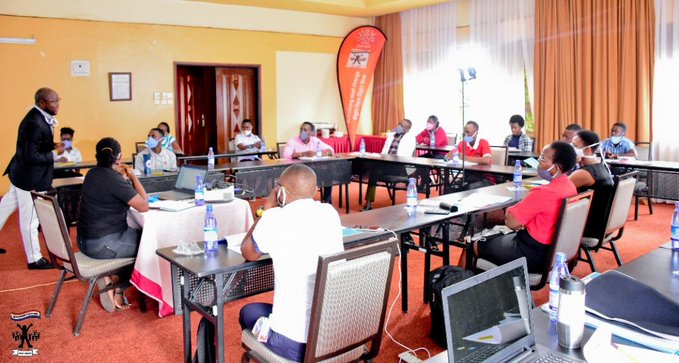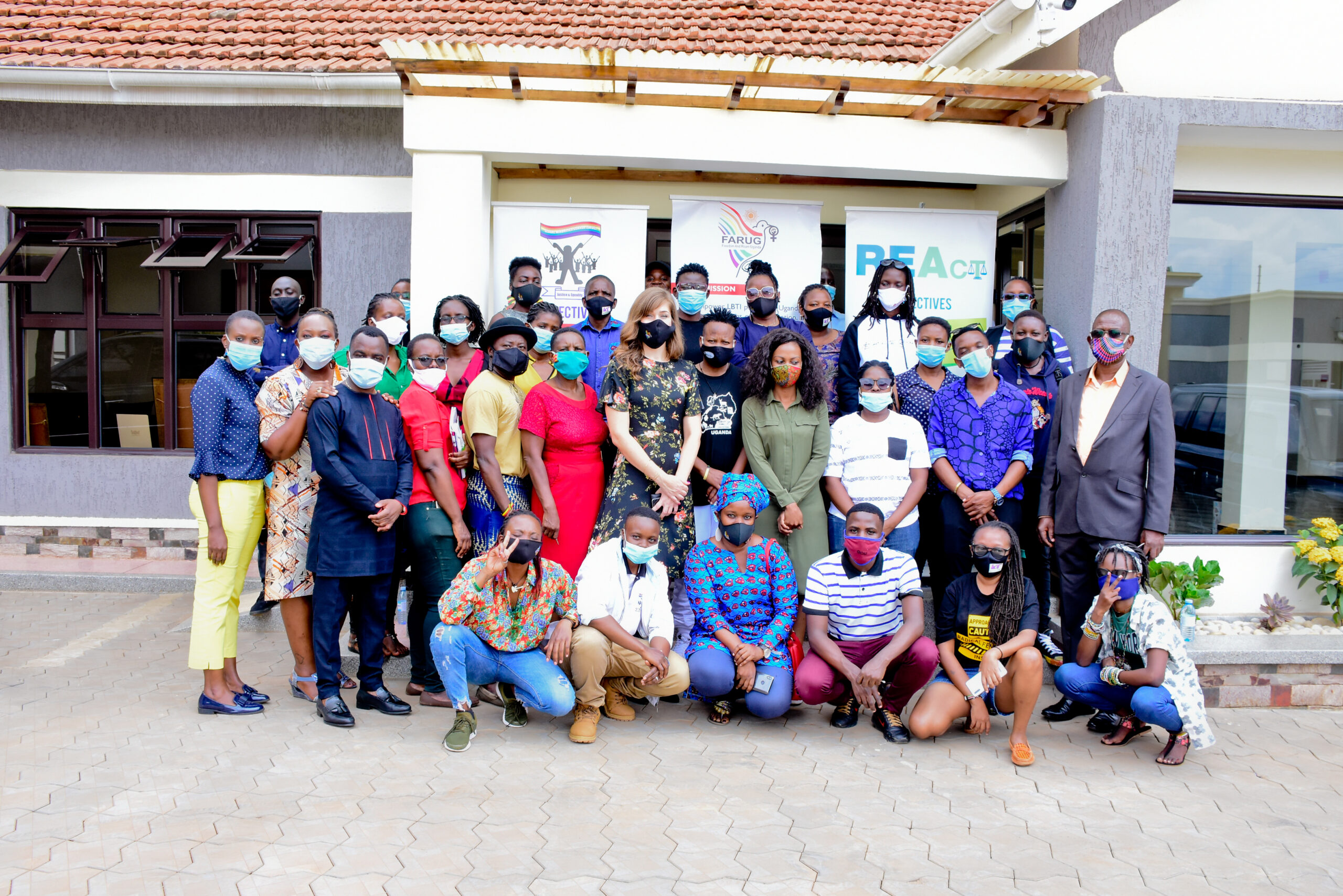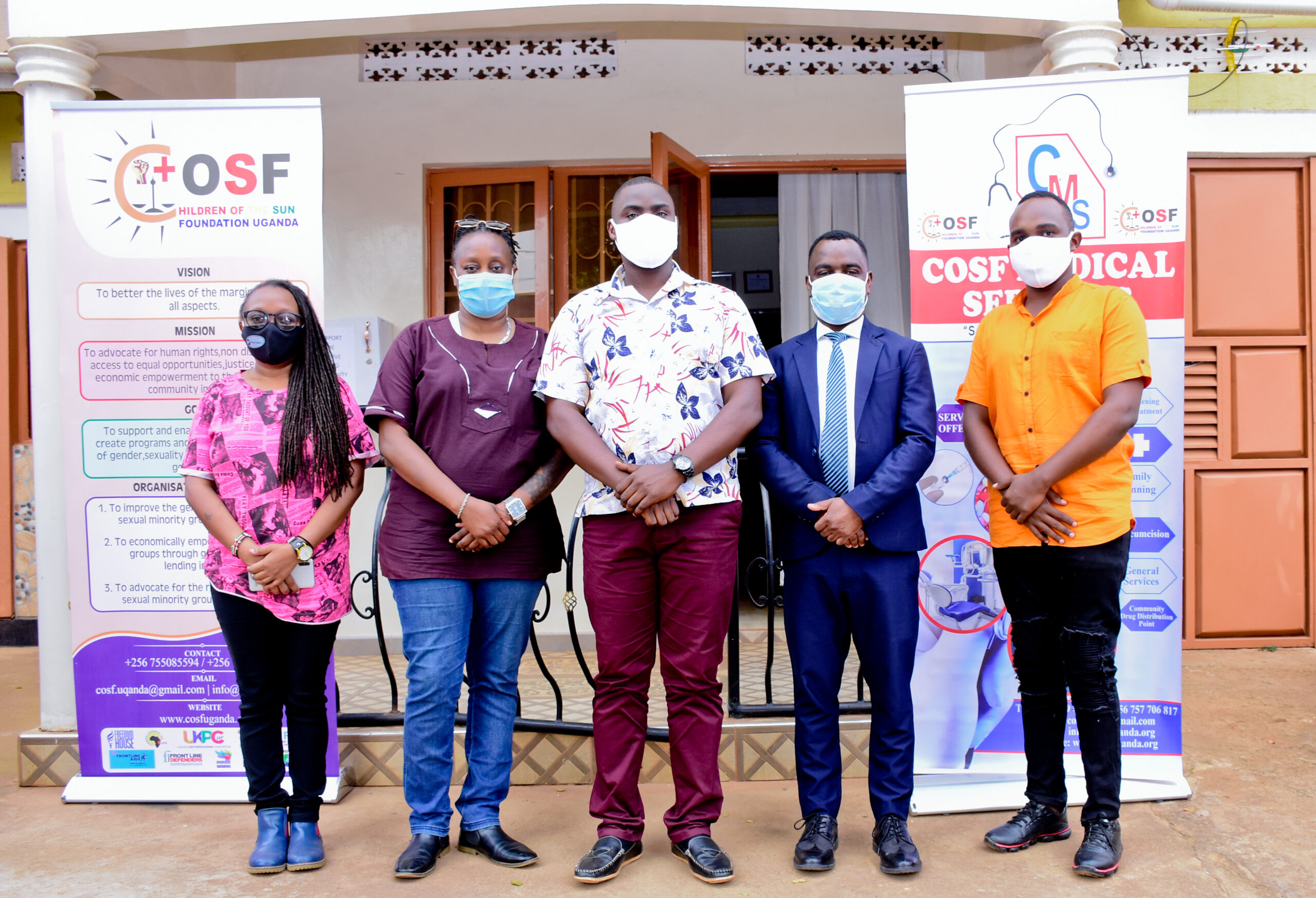Sexual Minorities Uganda held a dialogue with Health Care providers in Western Uganda in a bid to sensitize them on the needs of lesbian, bisexual, queer and trans-women in Uganda. The project that begun in January 2019 is sponsored by CFLI and is aimed at addressing the health needs for LBQT women that have for long been ignored.
Richard Lusimbo the SMUG Research and Documentation officer appreciated the health care providers who work with the community “As health service providers you are heroes for taking the initiative to provide health services to LGBTIQ people.” On discrimination of healthcare providers Richard said” It is absurd that even your fellow health service providers discriminate against you because of your patients. You can find someone saying “Those are Dr Maggie’s patients.” One is left to wonder what would happen if Dr Maggie was not at hospital when a KP needed her.”
One participant from Mbarara said “Provision of health care services to LBT people in Mbarara has improved after a conversation we had between us the health workers here and the community. Despite being a former homophobe, I’ve now trained my staff on how to work with KP without discrimination. I promised someone on my team that I would get them arrested if they continued being a stubborn homophobe.”
A participant from Kasese said, “We didn’t know about the existence of these people but when we met Alexa (community leader) our eyes were opened. We are now beginning to have specific days and hours to cater to LGBTIQ people at the clinic.” The participant hoped that with more advocacy, the health workers would be able to speak to other their colleagues at the clinic about LBT discrimination.
Another participant from Kasese wondered “How do we stop violence against LGBTIQ people especially if it is at police level?” She proceeded to narrate a gruesome police case where a transwoman involved in an accident was harassed by police instead of helping her. We should try and work together to fix this situation. We have a lot to do and cannot be quiet anymore.” She concluded that, there is need to change the homophobic syllabus being taught in schools because it is affecting health service provision for LGBTIQ people.”
Arthur a peer educator said, there’s need for more councilors to speak to transmen, the councilors we meet want to convert us and the things they say to us during therapy tend to cause more damage than good. Some therapists will even ask “You were a good girl, what happened?” he called for more advocacy when it comes to accessing hormones. He said “The truth is hormones are there but the reason for giving these hormones to people in Uganda is lacking. We also need you as health care providers to monitor those who will be using these hormones.
Sexual Minorities Uganda visit to Western Uganda is the third of such interventions that we are focusing on this year in a bid to address the huge gap when it comes to addressing the health needs for LBT women in Uganda.




